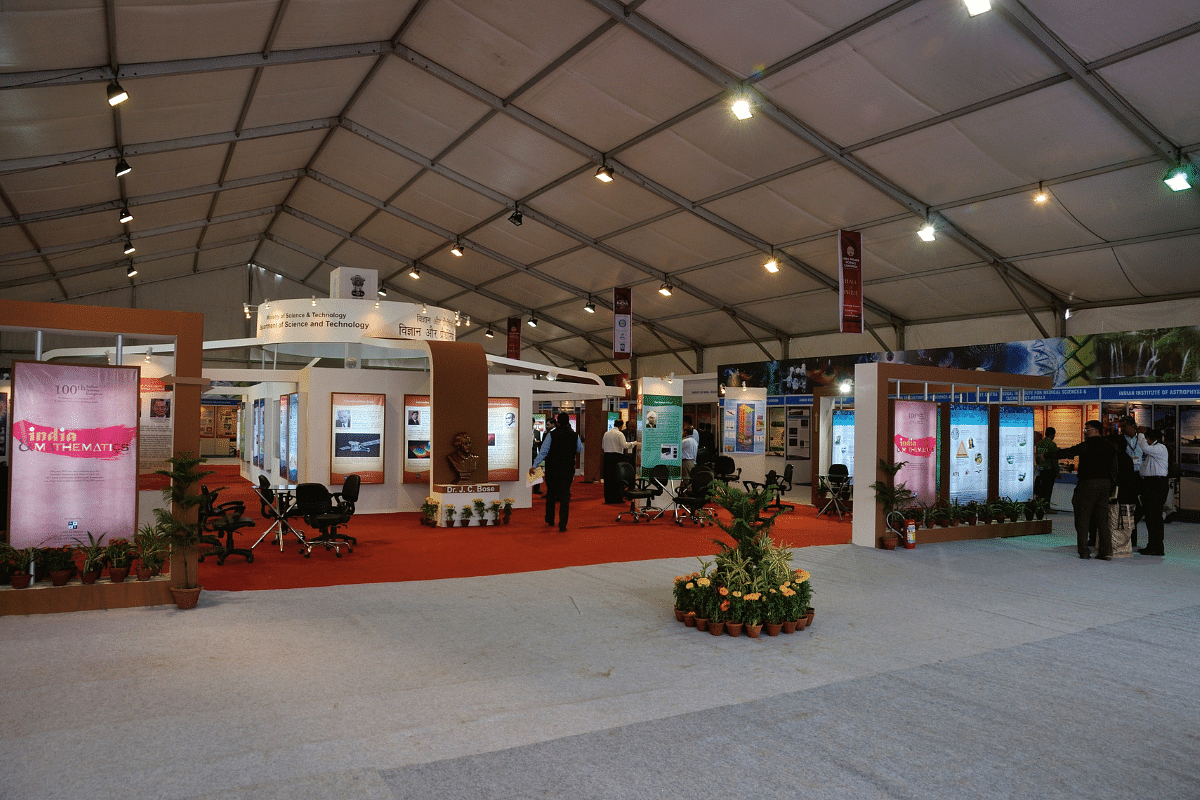Science
Indian Science Congress Will Be Held In Nagpur For Five Days In The First Week Of January 2023
- The Indian Science Congress will be inaugurated by Prime Minister Narendra Modi on 3 January.
- The broad central theme is ‘science and technology for sustainable development with women empowerment’.
- Notably, the 108th edition will be taking place in the year of India’s G20 presidency.

The 'Pride of India' exhibition at the '100th Indian Science Congress' in Kolkata, held from 3 to 7 January 2013. (Photo: Biswarup Ganguly/Wikimedia Commons)
The 108th edition of the Indian Science Congress will be held from 3 to 7 January 2023 in Nagpur, Maharashtra.
The science conference is returning after a gap of three years, as with many other events, on account of the Covid-19 pandemic.
The science congress is a gathering of scientists, science administrators, policy makers, and the general public to bring the importance of scientific enquiry and research to the centre stage of public awareness.
It also promotes interactions among scientists from a whole bunch of disciplines and institutions within the country as well as away.
The previous Indian Science Congress was held on the very same days of January 2020 at the University of Agricultural Sciences, GKVK Campus, Bengaluru.
The venue this time around is the Rashtrasant Tukadoji Maharaj (RTM) Nagpur University, which is celebrating its centenary year (100 years) in 2023.
The last time that RTM Nagpur University hosted the science congress, it was the year 1974, 49 years ago. Nagpur city has played host to the event four times in all thus far. The January programme will be its fifth time.
The broad central theme of this year’s science congress, which will be inaugurated on 3 January by Prime Minister Narendra Modi, is ‘science and technology for sustainable development with women empowerment’.
Notably, the 108th edition will be taking place in the year of India’s G20 presidency.
New findings in agriculture, forests, wildlife, basic sciences, engineering, science innovation, and new biology, among 14 areas, will be presented at the conference. Tribal science, pharma science, and science and society are among other topics that will be discussed.
Behind the annual meeting is the Indian Science Congress Association, which was initiated by two British chemists in the early 1900s approximately along the lines of the British Association for the Advancement of Science.
The first meeting of the congress was held in January 1914 at the Asiatic Society, Calcutta (now Kolkata). Ever since, the annual event has been making a vital contribution to scientific discourse in India.
The event “evolved as the most important forum among many scientific organizations” in India during the Second World War.
Further, it has been associated with names like Sir Ashutosh Mukherjee, Lord Rutherford, Daulat Singh Kothari, Ram Nath Chopra, and Suri Bhagavantam, Professor Gautam Desiraju writes.
“Through its annual meetings held across different parts of India, it unified the largely scattered specialist groups and, therefore, served as a crucial platform for catalyzing community consciousness (Gaillard, Krishna, and R Waast, 1997),” says a discussion paper by Sneha Sinha on the role of the association in galvanising the scientific community in India.
(Note that the science congress has also come in for some criticism more recently, such as written here and here in Swarajya.)
Several decades down, in its 2020 edition, as many as 15,000 persons, including Nobel laureates, scientists, students, and policymakers, participated in the 107th Indian Science Congress in Bengaluru. Meetings were held across a wide range of areas and recommendations were presented to all the regional chapters of the Indian Science Congress Association.
In 2021, Symbiosis International University was celebrating its golden jubilee year and was slated to host the 108th edition. However, the event did not come to pass that year, nor the next, because of the Covid-19 pandemic. The opportunity then came to RTM Nagpur University, which is celebrating its centenary year in 2023.
In the Nagpur conference next month, 100 renowned experts including two international Noble laureates — biochemist Ada E Yonath (chemistry Nobel, 2009) and chemist Sir Fraser Stoddart (chemistry Nobel, 2016) — will address various sessions.
According to Devendra Fadnavis, over 30,000 participants are expected, including more than 20,000 students, 12,000 student-researchers, over 500 tribal representatives, and more than 1,000 farmers.
Plus, over 3,000 research papers are expected to be presented.
Introducing ElectionsHQ + 50 Ground Reports Project
The 2024 elections might seem easy to guess, but there are some important questions that shouldn't be missed.
Do freebies still sway voters? Do people prioritise infrastructure when voting? How will Punjab vote?
The answers to these questions provide great insights into where we, as a country, are headed in the years to come.
Swarajya is starting a project with an aim to do 50 solid ground stories and a smart commentary service on WhatsApp, a one-of-a-kind. We'd love your support during this election season.
Click below to contribute.
Latest